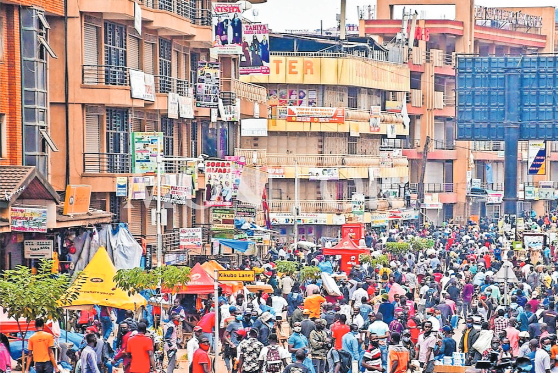Prime
Covid-19: Nabbanja’s money and Abdu Katuntu’s inquest

Author: Asuman Bisiika. PHOTO/FILE
What you need to know:
- The long and short of the story is that government will mitigate the negative social impact of Covid-19 with a cash relief of about Shs100,000. This cash relief was Prime Minister Robinah Nabbanja’s (personal) idea; and needless to say, she is at the centre of its execution.
Mr Timothy Nyakahuma Kalyegira, formerly of Tooro and Entebbe and now of Kampala, should give us filtered stats on how many times the word ‘Nabbanja’ has appeared on the lips of Ugandans in the last two weeks.
Such is the interest in what Kampalans call ‘Nabbanja’s ka money’ that it may have overshadowed the fight against Covid 19 pandemic. The long and short of the story is that government will mitigate the negative social impact of Covid-19 with a cash relief of about Shs100,000. This cash relief was Prime Minister Robinah Nabbanja’s (personal) idea; and needless to say, she is at the centre of its execution.
But in an unexplainable way, the government has been struggling over how to implement this idea. So, one may ask: why is the government struggling to execute the relief intervention? Because the central government in Kampala has always tried to avoid the local governments in such matters.
But why does the central government (ministries) avoid the Local Government structures? Simple: control of budgets. The local governments manage votes in the same way the ministries do. We are familiar with stories of Permanent Secretaries having issues with the CAOs over the control and execution of certain programmes.
The government is (supposed to be) a single backbone structure from the communities (LCI) summiting at the President and his or her Cabinet. The structures at the summit (President and Cabinet) are replicated (with some changes) at the two levels of Local Government namely the district and the lower local governments.
Last year, in what was viewed as an oversight (political leaders don’t make mistakes), Mr Museveni placed Resident District Commissioners (RDCs) at the centre of the districts’ efforts in the fight against Covid19. I argued that the Office of the RDC is not administratively (and managerially) disposed to manage such a national disaster as the Covid-19 virus scare had been portrayed by Mr Museveni.
The principal administrative unit in Uganda is the district local government under the administrative and managerial direction of the chief administrative officer (CAO). As the accounting officer and budgetary vote controller, all public resources (human or other) for the socio-economic development of the district are vested in the CAO. So, why is the so-called ‘Nabbanja ka money’ not managed by the district local government?
My information is that 9,000 persons from Kasese Municipality have been profiled and itemised by the town clerk to benefit from Nabbanja’s ka money. But the money is from the ministry responsible for social welfare (curiously not Ministry for Local Governments). So, much for Nabbanja’s ka money!
*****************
The most intriguing thing about Uganda under Covid19 is what looks like a sense of lack of direction by the government. Imagine, now there is this parliamentary something or other. I mean this one headed by Bugweri MP Abdu Katuntu now hogging the attention of the cameras. Save for the usual parliamentary this or that, no one can put a finger on the need, immediacy and strategic national interest it is serving.
Imagine this: we are in the middle of a battle. Our defensive positions are holding firm (with the usual fog of war). How would the commander fancy the Inspector General of the Military asking for the immediate trial of the commander for poor judgment or infraction on administrative actions?
What immediate value will this parliamentary something add to the fight against Covid19 (given the obtaining circumstances)? As Prime Minister Nabbanja recently said, let us forget the past. And I say: the mistakes we have so far made are enough lessons to help us be more focused. Otherwise audit reports parliamentary inquiries are creating a sense of hopelessness among the people.
Mr Bisiika is the executive editor of the East African Flagpost. [email protected]




